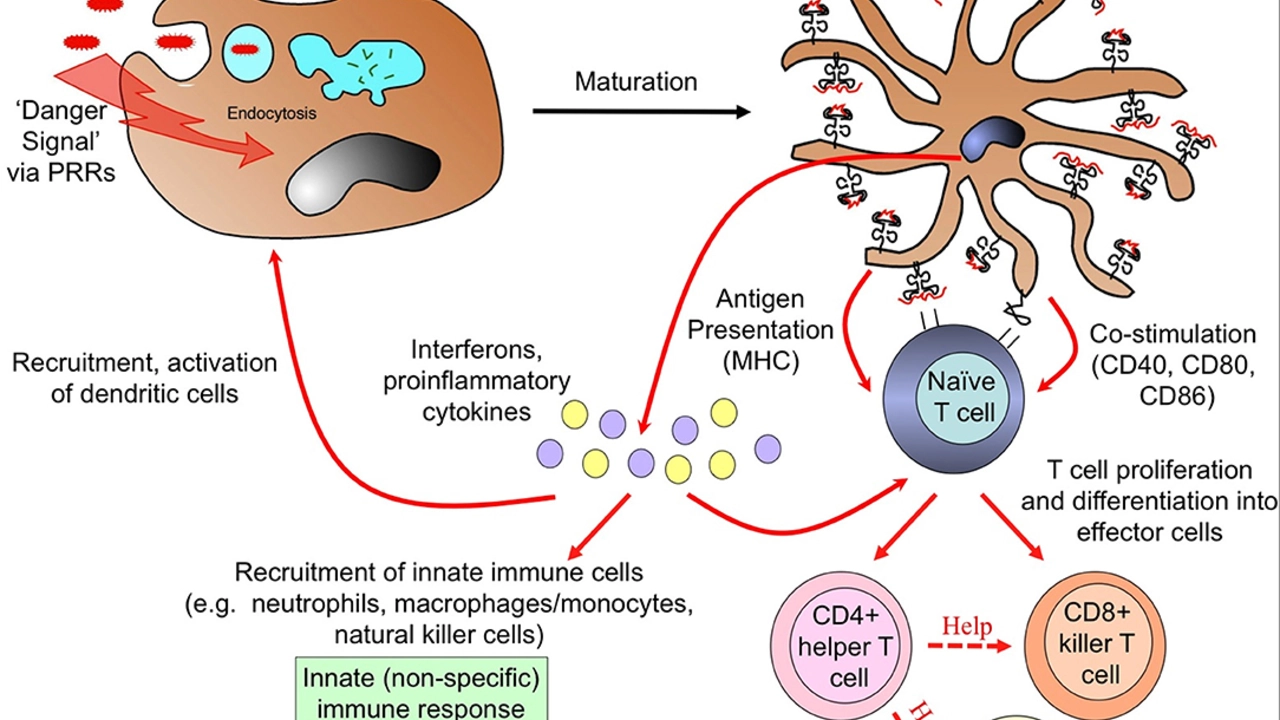Immune System Function: What It Does and How You Can Help It
Your immune system is a team of cells and signals that decides whether a germ is a friend or foe. It’s constantly working — killing pathogens, cleaning up damaged tissue, and remembering past infections so you respond faster next time. You don’t notice most of this until it slips: when colds linger, wounds take forever to heal, or infections come back more often.
How your immune system works
Think of immunity as two linked layers. The first layer, innate immunity, reacts fast. Barriers like skin and mucus trap invaders. White blood cells — neutrophils and macrophages — attack anything that looks harmful. The second layer, adaptive immunity, learns and gets specific. B cells make antibodies that lock onto a bug. T cells kill infected cells or help coordinate the response. Vaccines train the adaptive side so you can beat certain germs without getting sick first.
Those layers talk to each other using chemical messengers called cytokines. When the system is balanced, you clear infections with little fuss. When it’s out of balance, you can get repeated infections, allergies, or autoimmune problems where the body attacks itself.
Everyday habits that help — and ones that hurt
Small, practical changes make a big difference in immune system function. Sleep matters: aim for 7–9 hours. Studies show even one night of poor sleep reduces vaccine response and immune cell activity. Move regularly — 20–30 minutes of moderate exercise most days improves circulation and immune surveillance. Eat enough protein (meat, eggs, beans) because immune cells need amino acids to work. Include foods with zinc (oysters, beef, pumpkin seeds) and vitamin D (fatty fish, fortified foods) — low levels are linked to higher infection risk. If you live in a place with little sun, a daily vitamin D supplement of 800–2000 IU is common, but check with your doctor first.
Avoid heavy drinking, smoking, and chronic stress. Alcohol and tobacco directly harm immune cells. Stress raises cortisol, which dampens immune responses over time. Simple stress fixes — a short walk, breathing exercises, or talking to a friend — can help your immune system bounce back.
Hygiene still matters. Wash hands, handle food safely, and keep vaccinations up to date. Probiotics may help gut immunity for some people, but pick products with proven strains and reasonable doses. If you take supplements like zinc, don’t exceed short-term doses (typically under 40 mg daily) without medical advice.
See a doctor if you get four or more serious infections a year, infections that need IV antibiotics, or symptoms like unexplained weight loss, night sweats, or very low energy. Those signs could mean a deeper immune problem that needs testing.
Support your immune system with consistent habits: sleep, move, eat well, manage stress, and stay current on vaccines. Small, steady steps usually beat dramatic quick fixes.
The Connection Between Calcipotriene and Immune System Function
Well, folks, let's dive into the fun world of health and science today! You might be wondering, "What on earth is Calcipotriene?" - and you're not alone, it's a tricky one! It's actually a synthetic Vitamin D3 derivative, mostly used in treating psoriasis. But here's the kicker - recent studies suggest this tongue-twister might also have a significant role in enhancing our immune system function. So next time you're feeling under the weather, maybe it's not chicken soup you need, but a little dose of Calcipotriene instead!

